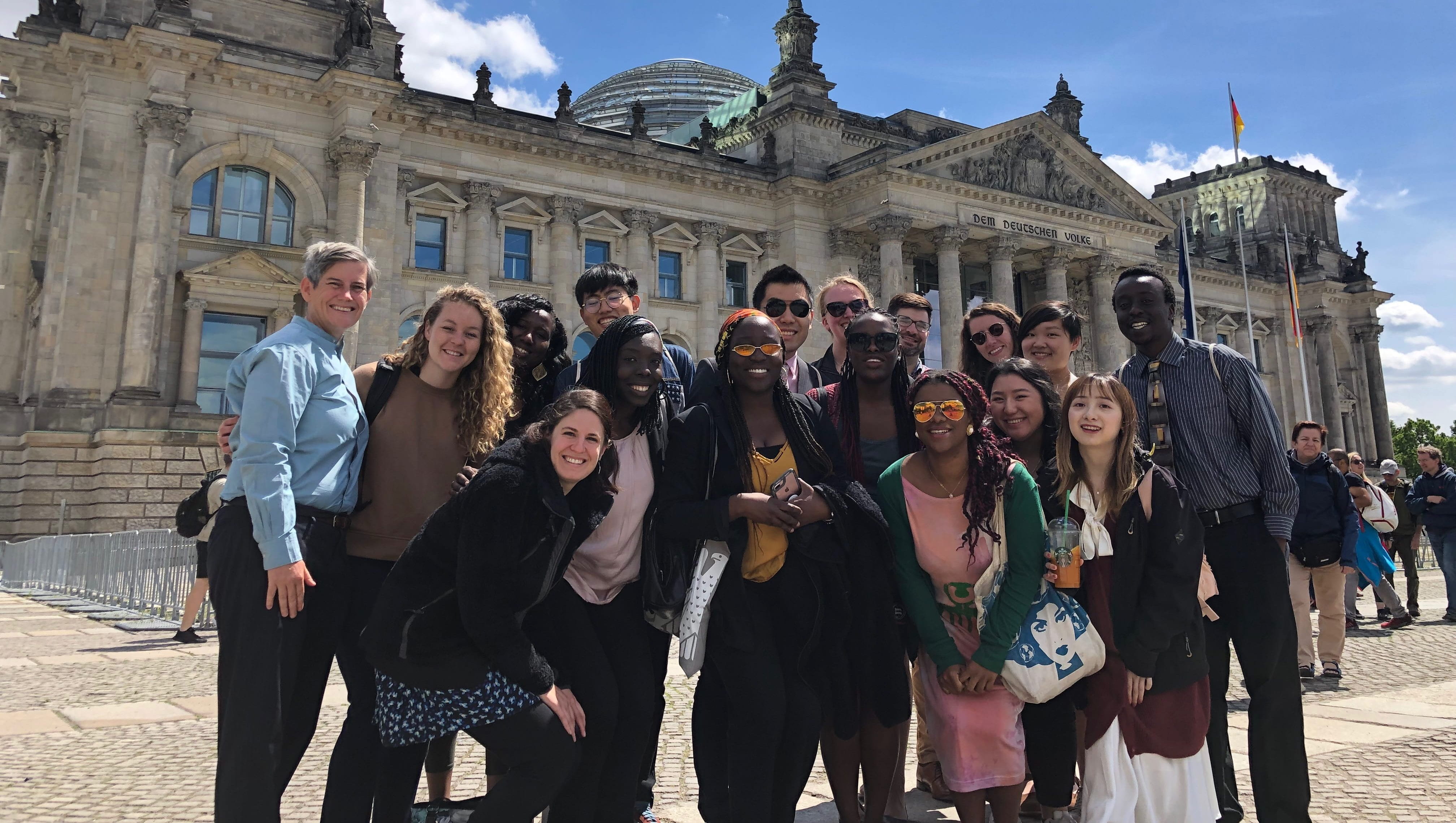
Faculty-led field-based courses provide opportunities for students to explore practical applications to classroom learning and research.
Every academic year, The Brown School offers up to three field-based courses taught partially abroad, which provide Brown School students and faculty the opportunity to learn, apply knowledge and collaborate with professionals in communities around the world.
The menu of courses changes each based on faculty proposals that must go through a selection process. Each course utilizes the Transdisciplinary Problem Solving format that is a key feature of the School’s curriculum, emphasizing the way insights and methods from various disciplines can contribute to addressing a contemporary challenge.
Students from all three programs are invited to apply to this competitive application process and are then matched to the program that best aligns with their academic interests and career goals. Travel costs for each of the programs are subsidized by the Brown School, to make these experiences as accessible as possible. Select students also have the opportunity to extend their stay and pursue an international practicum placement. The travel component takes place over breaks from the academic school year, such as Winter Break, Spring Break and Summer Break.
These are the courses being offered in 2023. You can also find more information and apply here.
The course is grounded in the Global Classroom concept of “distributed learning” that mobilizes the power of a diverse set of learners to collectively explore the multifaceted challenges associated with organized efforts to protect children and promote their well-being in humanitarian settings. It will emphasize global standards and best practice; the value of local, culturally-grounded voices/experience; collaborative workspaces and dialogue; and locally-informed investigations or assignments. The course format will include classroom lectures, discussion seminars, sites visits and data collection in Colombia. The course structure will combine classroom instruction with experiential learning provided through field visits to displaced communities and NGOs.
This course will build on the topics of Social Entrepreneurship, Social Innovation, and Social Work with the refugee and migrant population. The course is structured to introduce students to the responses and unfolding of the refugee influx to Germany, and challenges that the public health, social work, and urban development sectors face with regards to global population displacement.
This course will employ lessons from diverse fields including, but not limited to, agriculture, forestry, energy production, environmental economics, domestic and international policy, ecology, resource management, and human health. The course introduces perspectives from the natural and social sciences, arts and humanities, and professional disciplines and explores how their interconnection increases the prospects for creating a more sustainable future. The course will be taught in Costa Rica at Earth University.
This course will travel to Brazil over spring break and introduce students to understanding LGBTQ human rights and policy issues from an international perspective, with a strong focus on intersectional experiences of race, ethnicity, gender and sexuality. South America is undergoing a major cultural shift in the areas of gender related issues and sexual identity, moving from a conservative, male heterosexual dominated culture to a more open, liberal, and gender equal society. Several South American countries, such as Brazil, have been the unexpected global leaders in the advancement of the personal and political rights of their LGBTQ and ally citizens. Through exposure to other cultures and intensive discussion on LGBTQ international experiences displayed throughout this course, students will improve their awareness and understanding of the political, economic, social, and cultural contexts through an LGBTQ developmental experience lens, using Brazil as a point of study.